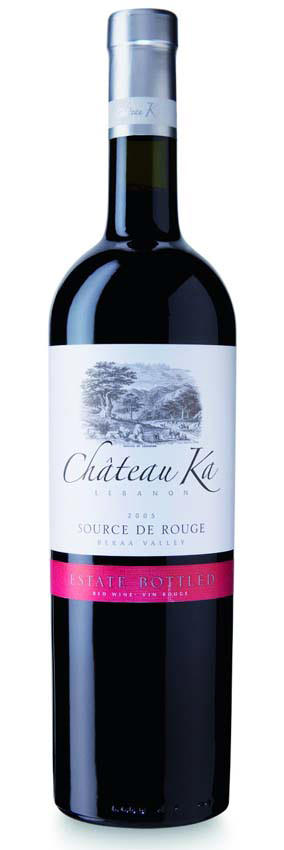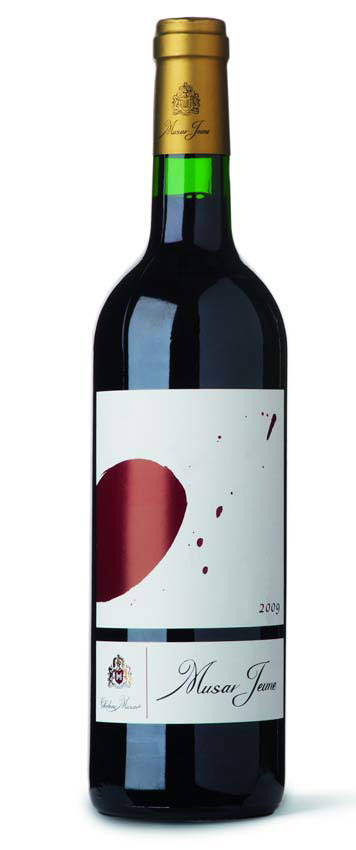Get Premium access to all the latest content online
Subscribe and view full print editions online... Subscribe
Lebanon's burgeoning wine industry is becoming serious business; Adam Lechmere falls for the country's exotic reds and perfumed whites
I was utterly beguiled by Lebanon on a trip earlier this year. This tiny war-ravaged country (as recently as 2006 the vineyards were caught up in Israeli bombing) has a thriving and world-renowned wine industry. Custodians of some of the world’s finest vine-land, and a 3,000-year-old wine culture, its winemakers are as upbeat and confident as it’s possible to be.
And with good reason. The Bekaa Valley, where most of the wines come from, is a mountain-locked plain at 1,000m above sea level and benefits from long sunny days and – most importantly – cool nights. In parts of the valley it’s not uncommon in summer to have a 30°C difference between day and night. Grapes ripen luxuriously and at night develop acids to give a perfect balance of freshness and fruit.
Lebanon’s colonial history means they favour French grape varieties. This is serendipitous: when the Jesuits revived the country’s ancient wine industry in the mid-19th century they planted the southern varieties – cinsault, grenache, carignan, syrah, mourvèdre - all perfectly adapted to hot, arid summers. Over the last 20 years there’s been a drive to introduce cabernet sauvignon and merlot, as well as malbec and cabernet franc, and for the whites, chardonnay, muscat, sauvignon blanc, semillon and viognier. It sounds like a hotchpotch, and it is. This is a young industry; winemakers are still working out what is best. Only the great, eccentric Serge Hochar at Chateau Musar uses the indigenous grapes obaideh and merwah for his whites, while everyone else favours international varieties. Faouzi Issa of Domaine des Tourelles, who trained at Chateau Margaux in Bordeaux, and other young winemakers like Joe-Assaad Touma of Chateau St Thomas (try his Les Emirs red), are dedicated to understanding both terroir and sophisticated modern trends.
Lebanese wines, at their best, are redolent of their terroir. The reds are fresh, and loaded with red fruit, but – we’re in the Middle East, remember – they have an additional aromatic layer of incense, sandalwood, Parma violets and Eastern spice. I particularly love the whites, which have wonderful nervy acidity as well as baskets of tropical fruit. The land is so potent it brings out a whiff of the exotic even in that universal workhorse cabernet.
The wines go perfectly with Lebanese food, of course – spicy lamb, hummus in all its garlicky variety, robust salads. But the more powerful reds are also excellent foils for the more powerful Indian dishes.
And another thing: the Lebanese are the direct heirs of the Phoenicians (as they love to tell you), who built an empire on trade alone. They are hard wired to sell, so they punch far above their weight in terms of carving out shelf space in the UK’s supermarkets.
Of course, there’s bound to be a bandwagon effect. A few years ago there were half a dozen wineries, now there are more than 40, and we’ll certainly see ‘super-cuvées’ in the international style with big prices to match. But now, Lebanese wines are unpretentious, delicious, exotic and affordable. What’s not to like?
Lovely gold colour, delicately perfumed nose, dense palate with sweet acidic lift and flavours of apricot and peach. Fresh, nervy minerality. An exotic wine, wonderful with Lebanese salads and dips.
Available at:Marks and Spencer

With muscat, viognier and sauvigon blanc, this is a dense, sweet and spicy wine with flavours of peach and rose petals. Powerful and viscous. Drink with white meat dishes.
Available at:Great Western Wine

A rich blackcurrant and blackberry nose set off by notes of herb, spice and sandalwood: this is a classic Lebanese wine. Gentle tannins and the acidity makes this wine fresh and clean. Enjoy with meat.
Available at:Waitrose

Ripe red cherry, raspberry and cooked strawberry flavours with the inimitable Musar spice – violets, sandalwood, white pepper and hay. Perfect with robust spiced lamb kebabs.
Available at:Selfridges

Gooseberry on the nose, then perfume on the palate. Yeasty notes underlying zesty citrus flavours with good weight and lovely acidity. A bright, fresh white; drink with couscous, chickpea and yoghurt salads.
Available at:http://slurp.co.uk

Subscribe and view full print editions online... Subscribe